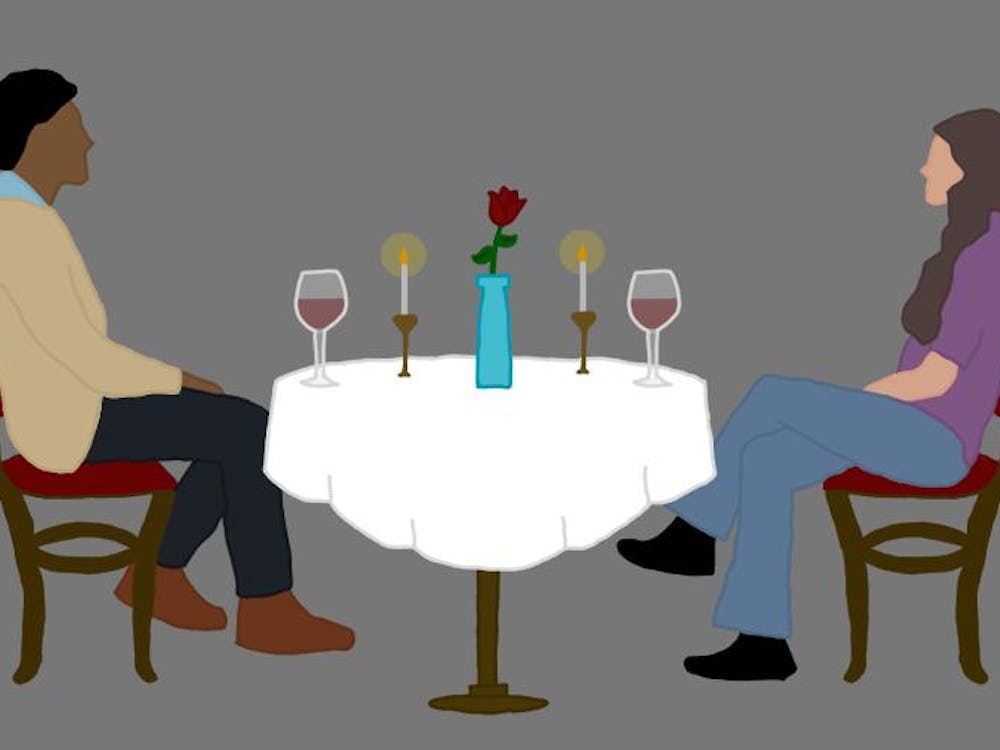Along with the typical student academic and extracurricular responsibilities, some University students also bear financial responsibilities.
About 45 percent of the undergraduate class uses some of the services provided by Student Financial Services, director Yvonne Hubbard said. Another 25 percent qualify for need-based financial aid.
Although the University offers scholarships, loans and the federal work-study program to help students pay for college, some students said financial burdens are still something they frequently must take into consideration.
Second-year College student Nikki Walters said she started working at age 16 to save money for college.
"I love my family to death, but just financially speaking, I knew they couldn't afford to send me to the college I wanted to go to," Walters said.
In high school, Walters worked at a restaurant for three years and babysat to help pay for college. Last semester, she worked at the Biltmore to continue earning.
Walters arranged her schedule with the Biltmore to work mostly weekends, but she said it is still very demanding at times.
"If you close at the Biltmore you have to come back at 2 a.m. because that's when the bar closes," Walters said. "So generally you didn't get out there until after 2 a.m. and then the next morning I'd work at 11 a.m. so my weekends were basically non-existent."
While Walters works to pay for in-state costs, first-year College student James Anderson said he has the added burden of paying as an international student.
Originally from Australia, Anderson said the exchange rate only increased the pressure of repaying any loans he must take out.
"The big decisions were whether, at this point in my life, I wanted to incur such a large amount of debt," Anderson said. "It sounds crazy, but you really do start thinking about what sort of financial situation you want to be in when you start a family after college."
Like Walters, Anderson took on multiple jobs before coming to the University to help his parents pay.
"I worked five jobs simultaneously for six months from the end of the Australian school year, December, to the start of the fall semester, August," Anderson said.
Despite his efforts, Anderson's earnings were just shy of paying for his first semester, so he looked to his parents.
For this semester, "I've used all the inheritance from my grandparents, all of the money my parents were going to put towards university in Australia, and I've taken out a $9,000 loan from my parents as well," Anderson said.
Anderson said his parents based their financial decisions on Anderson attending college in Australia, where government grants are easier to get and where his parents would have been mostly done with paying for his education after he completed his private high school.
"It's my decision to come here; I could've easily stayed in Australia, paid little and received an extremely good education," Anderson said, "But I wanted to go the extra mile, so the responsibility for paying that rests on my shoulders."
Other students, like first-year Engineering student Hannah Noyes, said they are lucky to participate in the federal work-study program at the University.
Hubbard said the program guarantees qualified students a job of their choice with the University. Students who chose to accept a job work about ten to fifteen hours per week, she said. The salary ranges from $5.35 to $17 per hour, depending on the job and the department.
"My office pays 70 percent of their wages so you can see that it's nice for the department," Hubbard said. "It helps the school and helps the student."
Hubbard said there are about 600 undergraduate students and 400 graduate students participating in the program.
Noyes said she does not rely on financial aid, but it still helps to have a salary she can use as needed.
"It's a steady income for my own personal expense," Noyes said. "My parents pay for tuition and room and board, but I have to pay for everything else, like books."
Noyes works for the University Career Services where she is a Communications Assistant. She said she makes posters, updates websites and does other things that help advertise events run by UCS.
While the work-study program, in general, allows for choice and flexibility in work hours and location, Noyes said her particular job only offers hours until 5 p.m. on weekdays.
"This makes my nights free, but this job specifically makes my days more hectic," she said.
Although it can be difficult, students said having financial responsibility in addition to their usual student duties does have some advantages, such as gaining real world experience in financial matters.
"I feel like, when I leave here, I'll be a lot more prepared for the real world just because I've had the experience already and I'm independent," Walters said.
Walters said she is more respectful of the work people must do to get where they are.
Similarly, students said they have a greater appreciation for and understanding of how money functions after college.
"You get a much more objective realization to how important money is to getting things done," Anderson said.
While Walters plans to continue to be a Resident Advisor, which helps reduce the cost of attending the University, Anderson still has doubts for where he will be next year. He said he might have to go back and finish his education in Australia because he cannot get aid such as the work-study program because it only applies to U.S. citizens. Walters said he plans to write the Seven Society to ask for help since he came to the University for the Woodrow Wilson Department of Foreign Affairs to major in Political and Social Thought.
"This has been such a huge decision -- staying here -- so every single day that I'm here is like living out a fairy tale," Anderson said.






